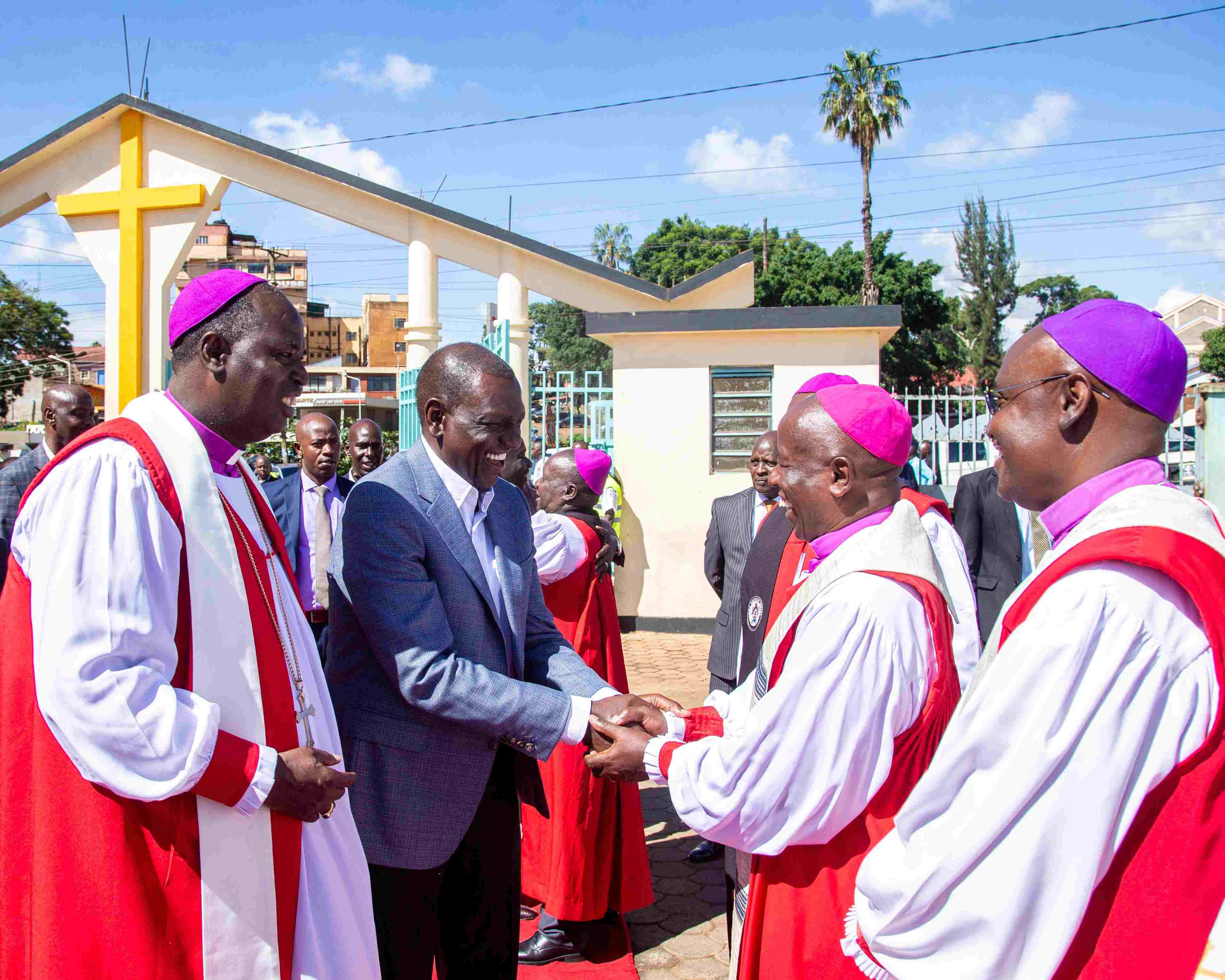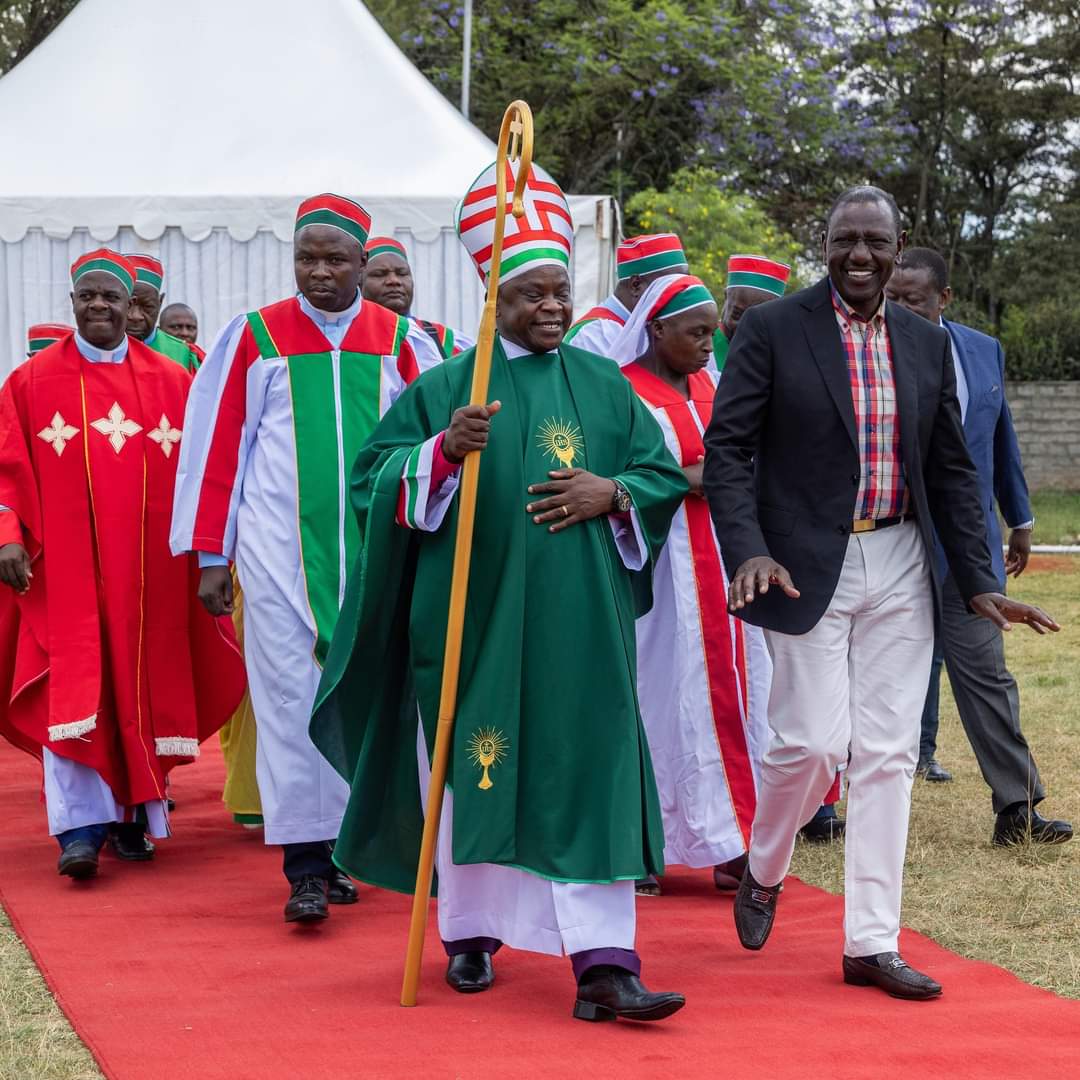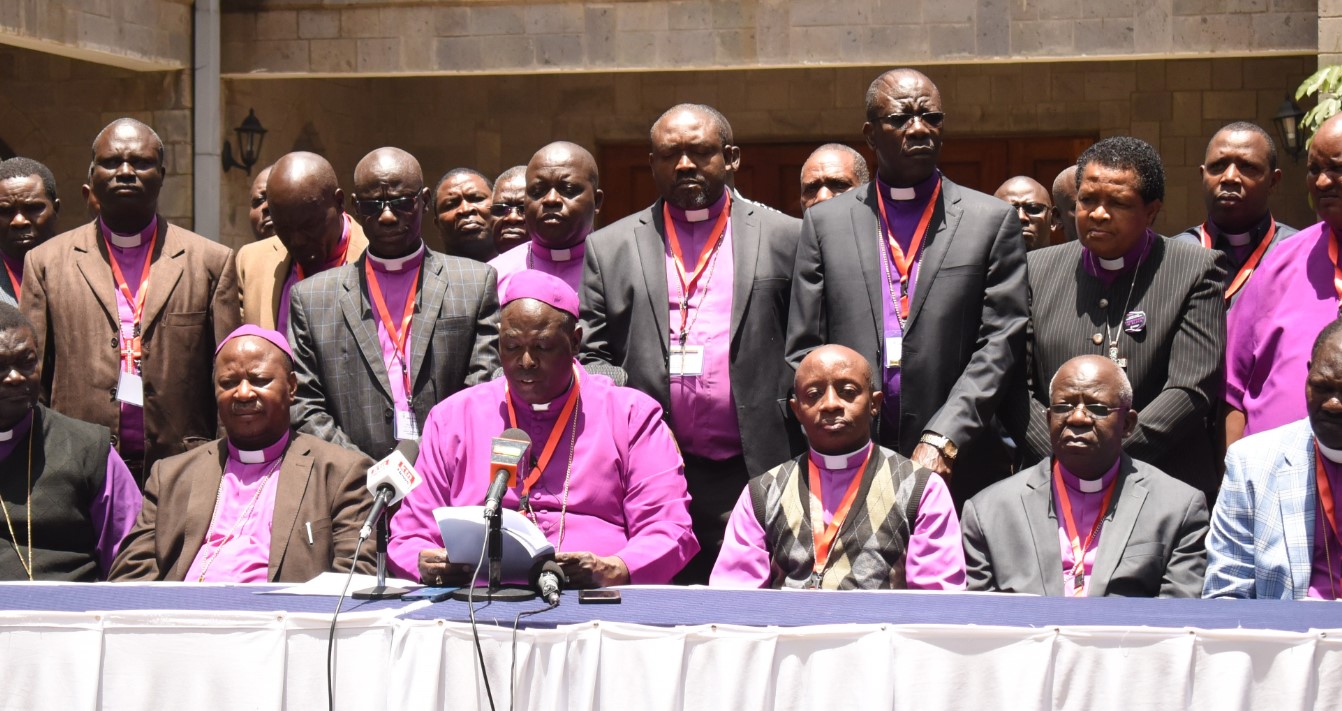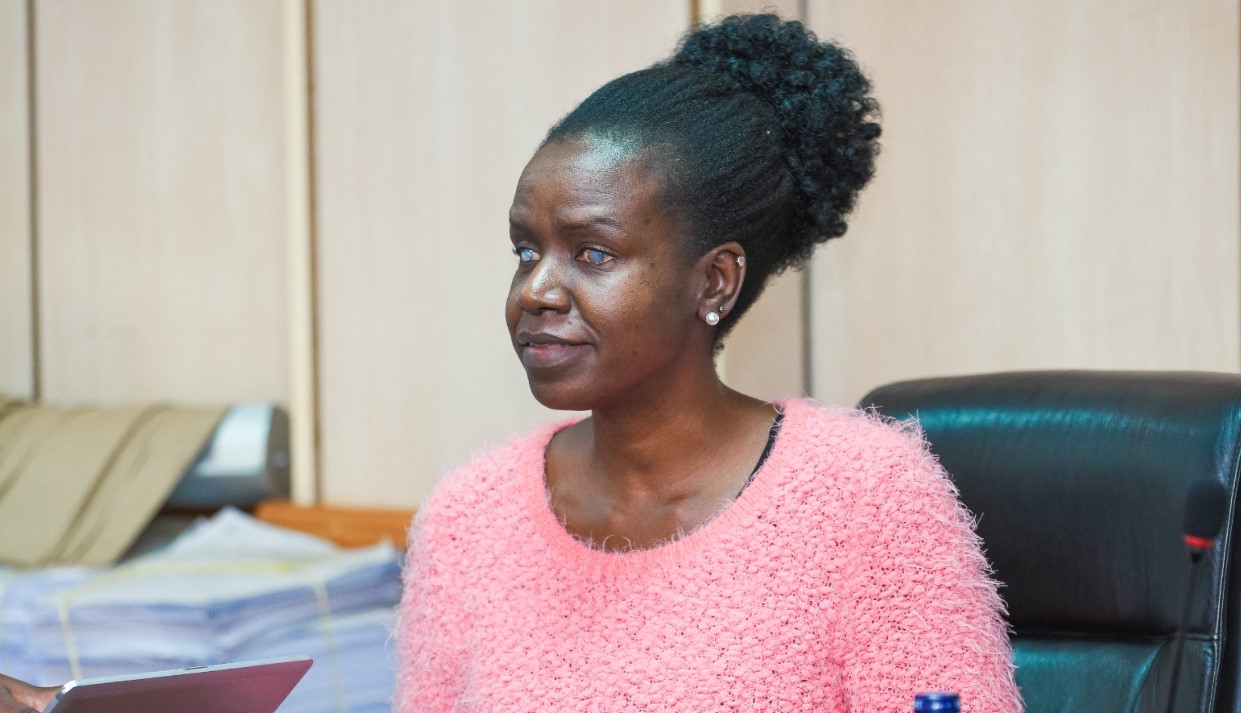How Ruto's rise from ‘David’ to ‘Zacchaeus’ sparked church rebellion

The fallout has intensified as his administration enforces controversial policies, particularly heavy taxation, sparking dissent from clergy and citizens alike.
President William Ruto, once a favoured figure among religious communities, is now facing growing criticism from church leaders across Kenya.
The fallout has intensified as his administration enforces controversial policies, particularly heavy taxation, sparking dissent from clergy and citizens alike.
More To Read
- Ruto backs IMF partnership as key to Kenya’s debt, economic reforms
- Tough decisions stabilised the economy, saved Kenya from shame – Ruto
- Ruto and Oburu strengthen UDA-ODM alliance after by-election win
- Ruto unveils Sh400 billion mega dam plan to turn North and Coast regions into Kenya's new food basket
- Ruto says 15,000 jobs on the horizon following launch of landmark highway expansion
- Ruto says Kenya can attain first-world status within three decades
Two years after being elected with strong support from Christian voters, Ruto's reputation as a ‘David-like’ leader—hailed as a shepherd rising to power—has eroded.
Church leaders have drawn parallels between him and Zacchaeus, the infamous biblical tax collector, highlighting disillusionment with his governance.
Ruto’s electoral success was bolstered by a religiously charged campaign, with him attending diverse church services and attributing his win to divine intervention.
However, rising costs of living, increased taxes on salaries and fuel, and a controversial housing levy have led many to question his leadership.
Opposition to Ruto's policies peaked during anti-tax protests in June, where young activists criticised the close ties between churches and politicians. These protests, which resulted in deaths, arrests, and reports of disappearances, prompted faith leaders to reevaluate their position.
The Kenya Conference of Catholic Bishops (KCCB) issued a damning statement last week, accusing the administration of fostering a "culture of lies" and failing to deliver on campaign promises.
They criticised rampant corruption, over-taxation, unemployment, disturbing gaps in the implementation of the CBC education system, and human rights abuses, with one bishop likening the state to an "Orwellian dystopian authoritarian" regime.
 President William Ruto at the African Divine Church, Nairobi on November 3, 2024. (Photo: Handout)
President William Ruto at the African Divine Church, Nairobi on November 3, 2024. (Photo: Handout)
“We have made clear statements many times in the recent past, with very little response from the government. Despite the calmness we are experiencing, there is a lot of anxiety and most people are losing trust in the government," Archbishop Maurice Muhatia of Kisumu said.
“We recall other pertinent unresolved issues we have raised recently with the government: over-taxation of Kenyans, the hiking of missionary work permits, youth unemployment, regulations of the education system, especially the CBC, and university loan schemes. The failure to constitute the IEBC... this culture of lies, unkept promises, and misplaced priorities is unacceptable and needs to be dealt with," Dominic Kimengich, Bishop, of the Catholic Diocese of Eldoret said.
Politics of self-interest
Additionally, the clergy criticised local politicians for advancing politics of self-interest and political wrangles, which risk balkanising the country.
Even worse, the Catholic Church further rejected a $40,000 (Sh5.6 million) donation from Ruto, citing ethical concerns.
His donations included Sh600,000 for the church choir and Parish Missionary Council (PMC), Sh2 million for the construction of a priests' house, and a promised Sh3 million for the same project. He also pledged a parish bus in January upon his visit back to the church.
Nairobi’s Governor Johnson Sakaja had also donated Sh200,000 to the choir and PMC, with the clerics promising to return them.
"These funds will be refunded to the respective donors. Furthermore, the promised additional Sh3 million for the construction of the Fathers' house, as well as the donation of a parish bus by the President, are hereby declined," Metropolitan Archbishop of Nairobi Philip Anyolo noted in the statement on behalf of the Bishops.
Archbishop Jackson Ole Sapit of the Anglican Church of Kenya and other religious leaders echoed the bishops' sentiments, condemning what they describe as escalating impunity and rights violations under Ruto’s rule.
 ACK Archbishop Jackson Ole Sapit speaks during a media briefing in Nairobi on September 26, 2024. (Photo: Handout)
ACK Archbishop Jackson Ole Sapit speaks during a media briefing in Nairobi on September 26, 2024. (Photo: Handout)
“Calling church leaders names or dismissing the bishops' statement as "misleading, erroneous and false," is itself dishonest. The bishops have spoken the minds of Kenyans and faithfully expressed the truth as things are on the ground. No amount of attacks or intimidation will deter the church from calling out evil and speaking the truth to power,” Archbishop Ole Sapit said.
Prominent figures such as Rev Teresia Wairimu of Faith Evangelistic Ministries and Rev Tony Kiama of the River of God Church have also publicly condemned Ruto’s administration.
Kiama accused the government of advancing "evil purposes," citing corruption, economic hardship, and state violence during protests.
Influential role
The shift marks a significant moment in Kenyan politics, as the church's critique rekindles memories of its influential role in advocating for democracy in the 1990s.
Analysts argue that the church once co-opted into silence under successive governments, is regaining its voice.
Muslim leaders, including Sheikh Abubakar Bini of the North Rift Council of Imams, have also urged the government to view the church’s remarks as constructive advice.
Meanwhile, allies of Ruto, such as Kapsaret MP Oscar Sudi, have apologised to the Catholic bishops, acknowledging the weight of the criticism.
In response to the mounting discontent, Ruto has struck a conciliatory tone, promising further engagement with religious leaders.
"We have made undeniable progress, but there remains much to be done. We must continue working together,” Ruto said in a tweet.
The fallout has sparked concerns about Ruto’s political future, with analysts warning that his deteriorating relationship with religious institutions could undermine his re-election bid.
Veteran journalist Macharia Gaitho remarked, "He knows he cannot fight the church."
What once served as a cornerstone of his ascent to power may now become a significant hurdle as Kenya’s religious leaders take a firm stand against his administration.
Top Stories Today

















































